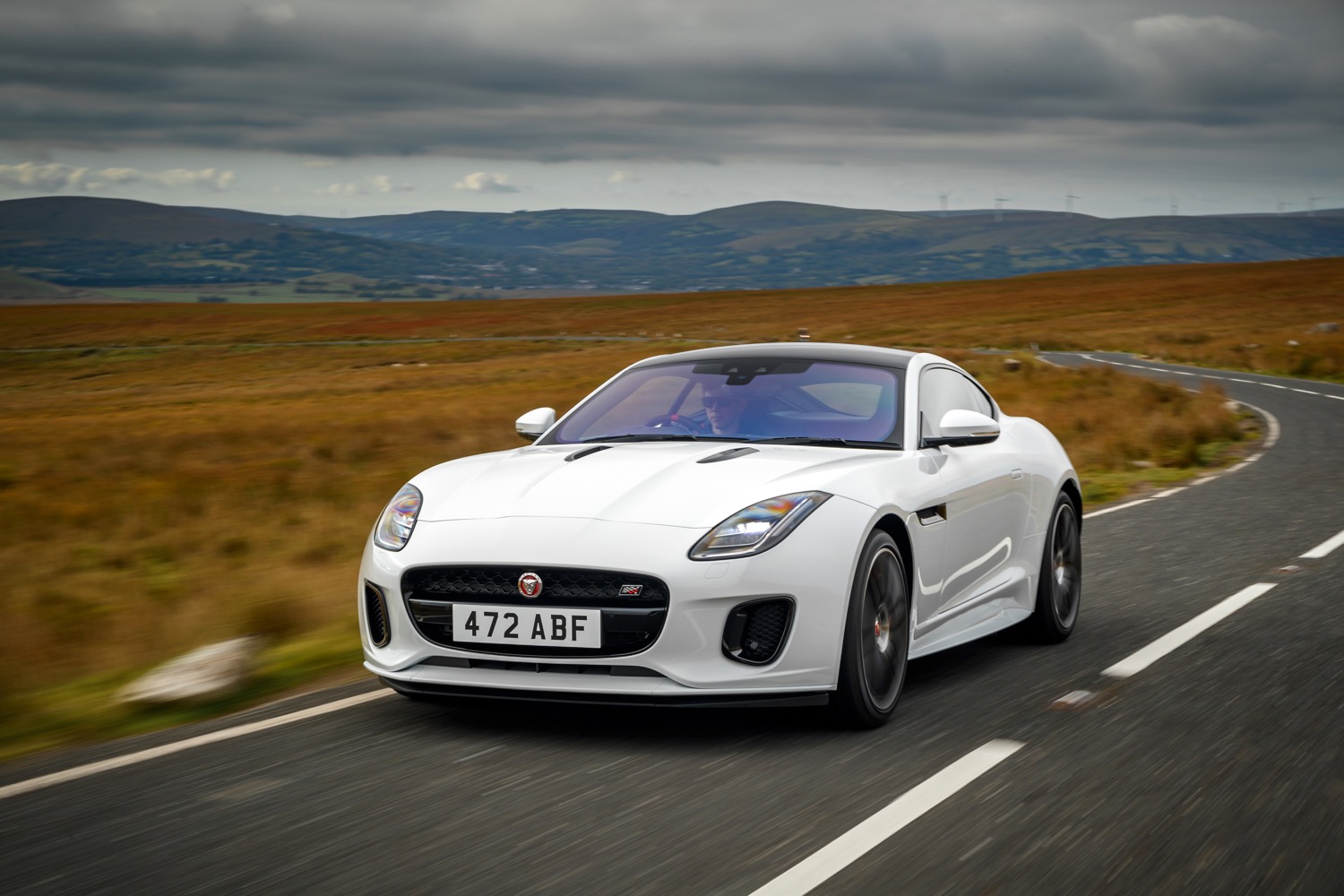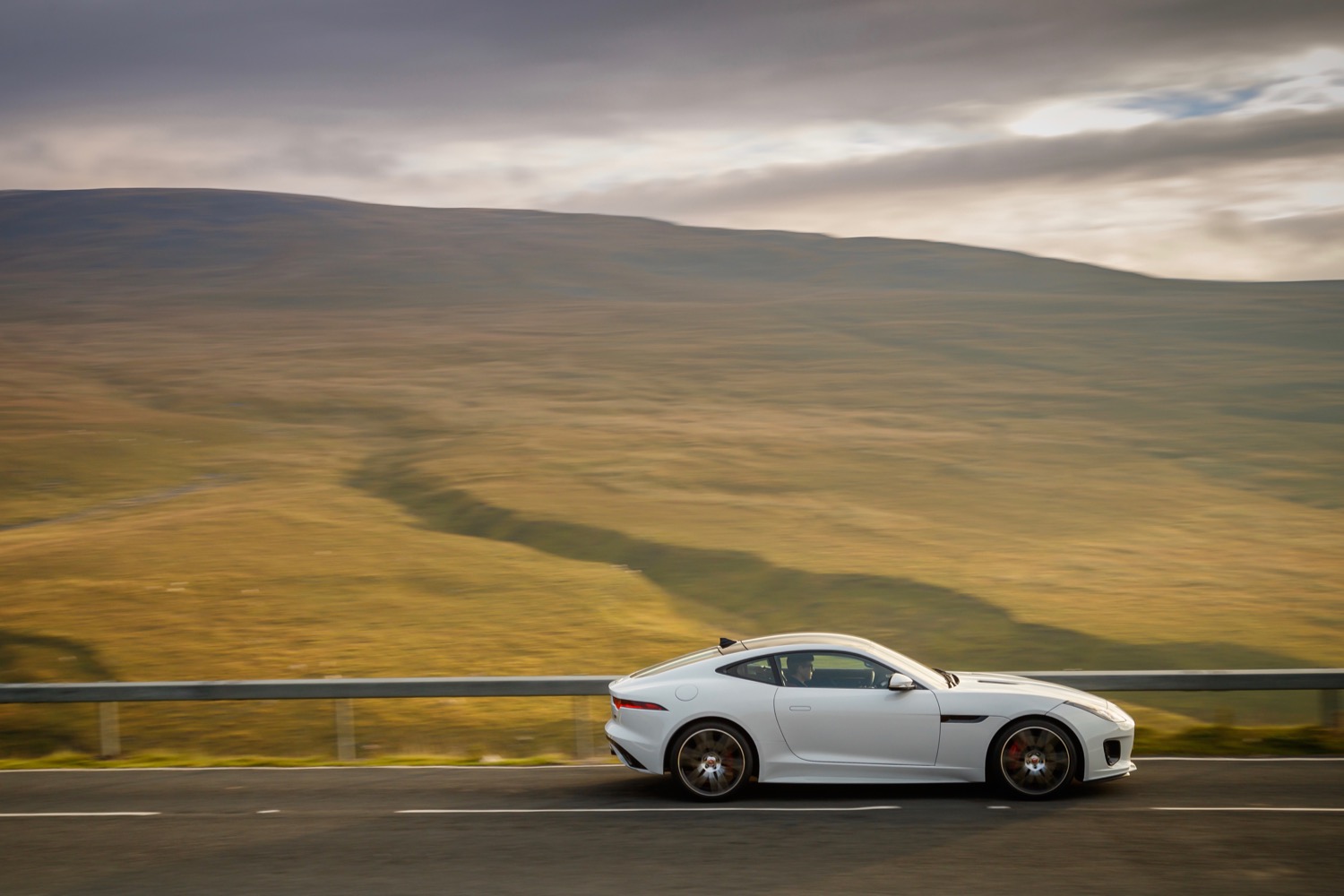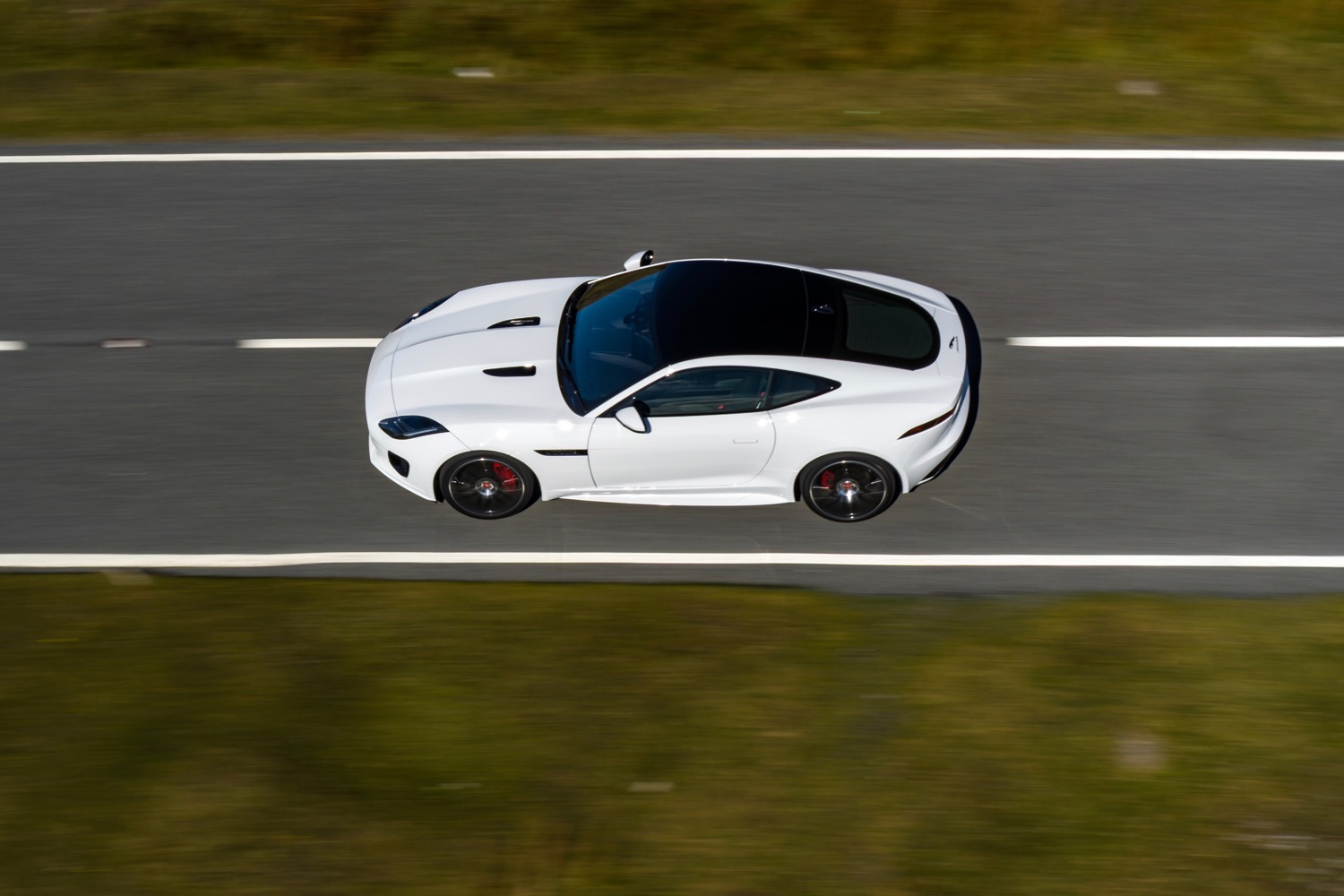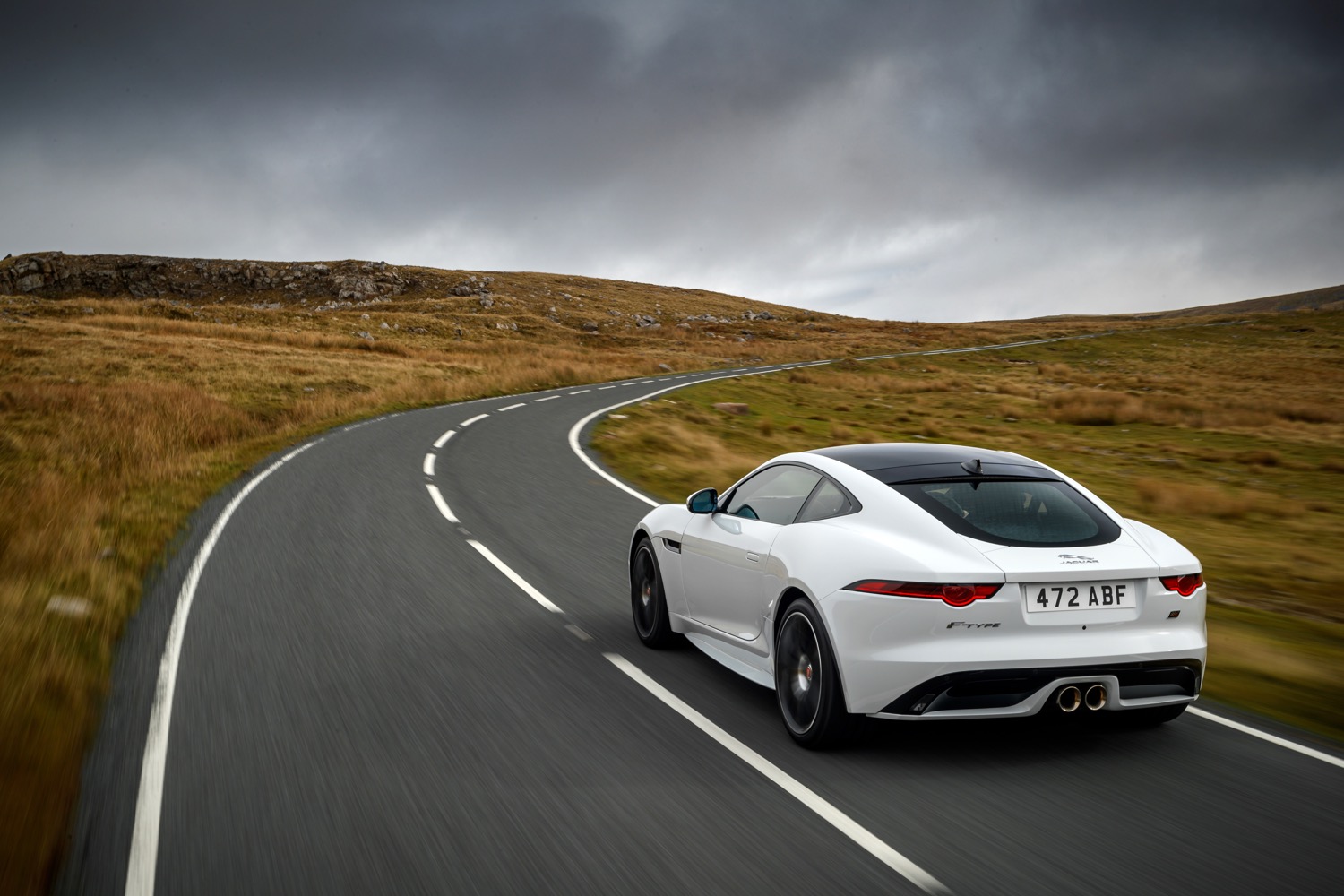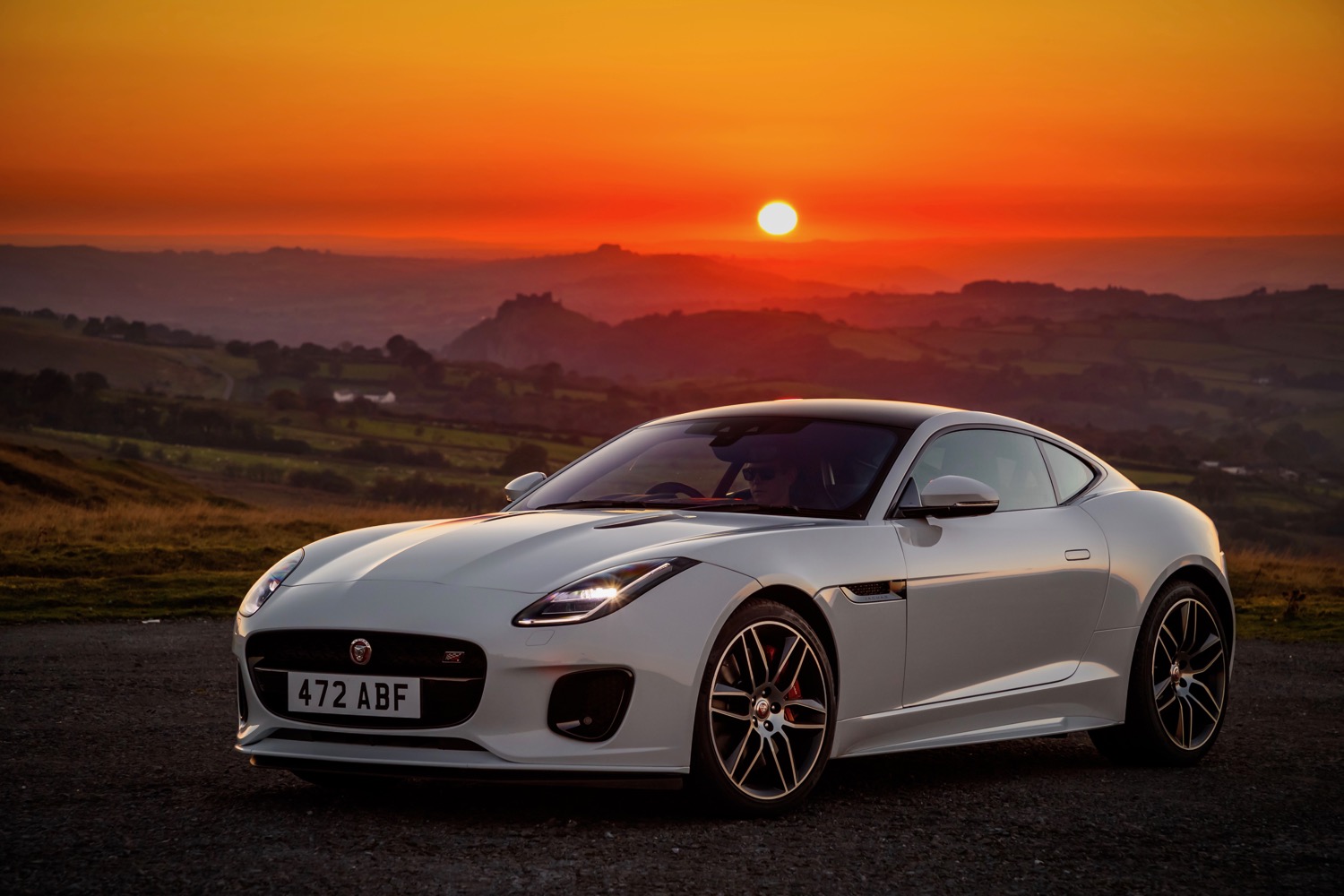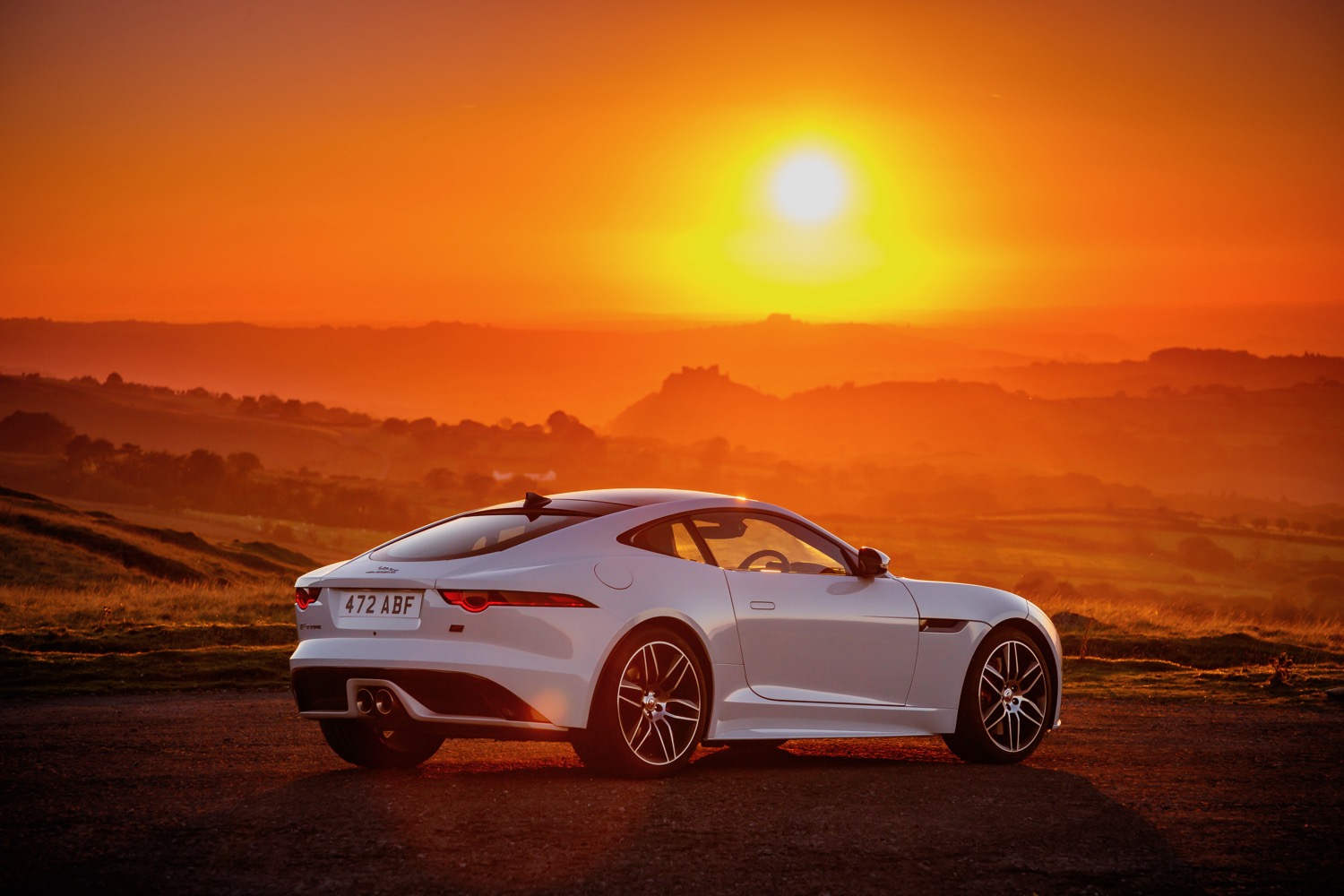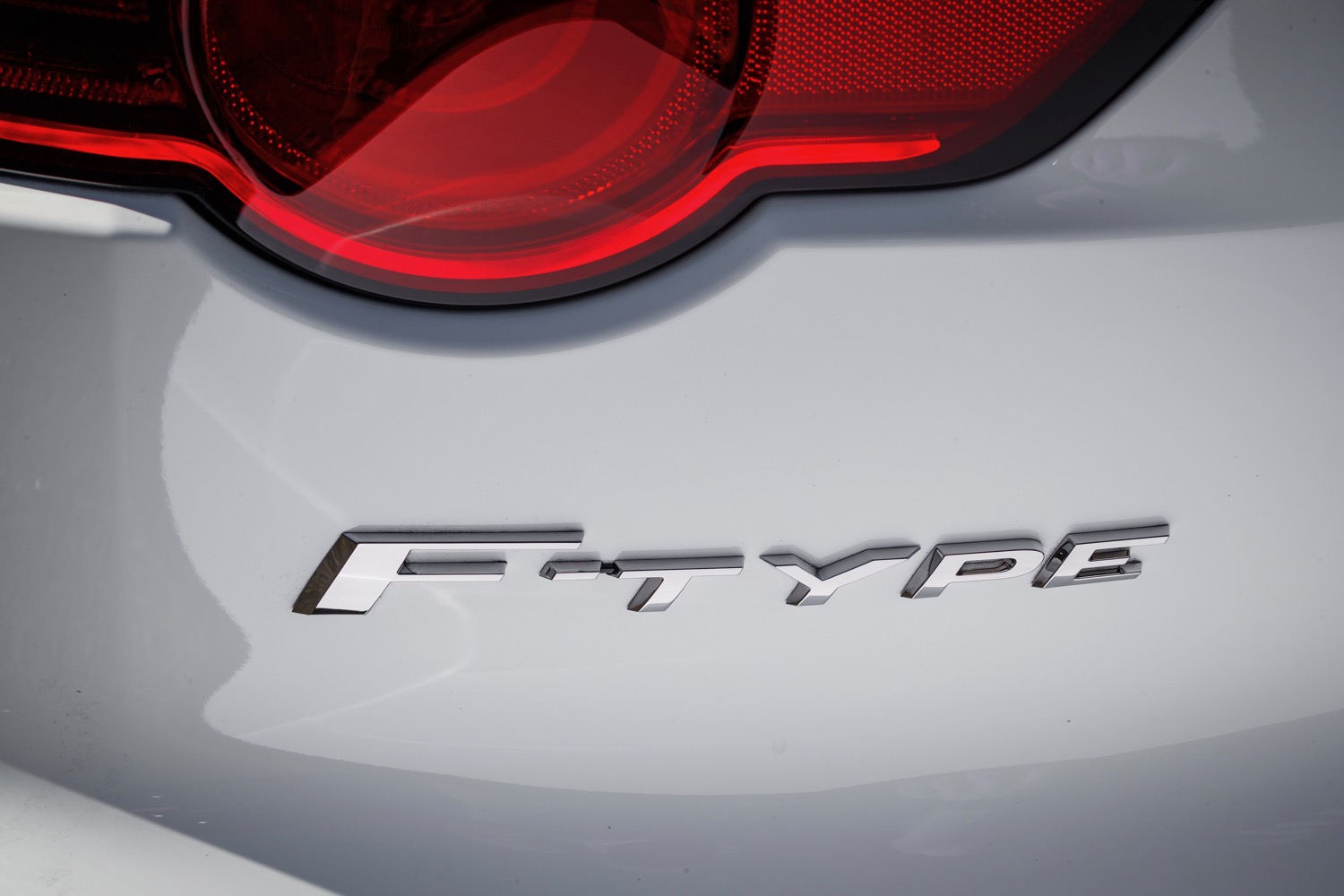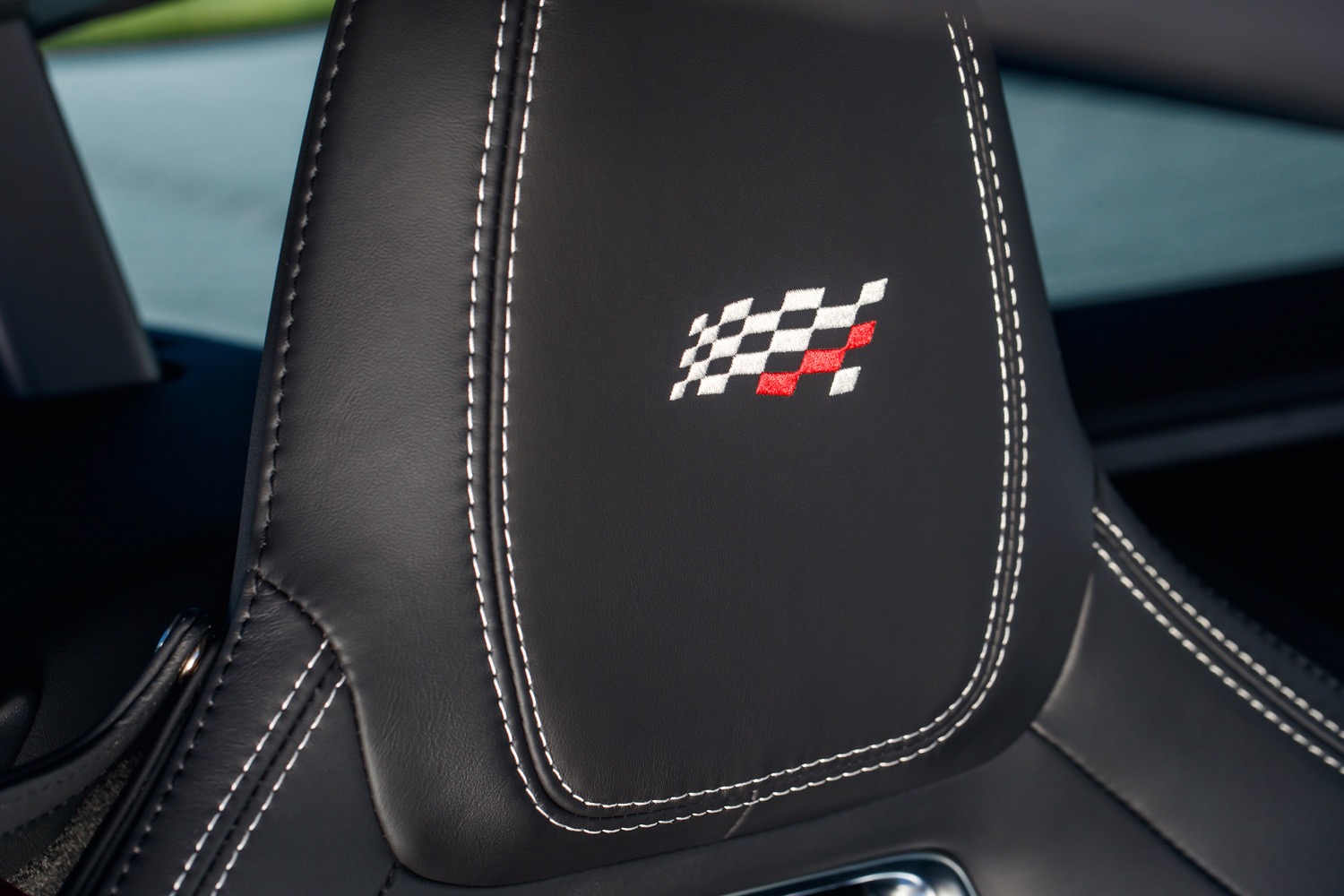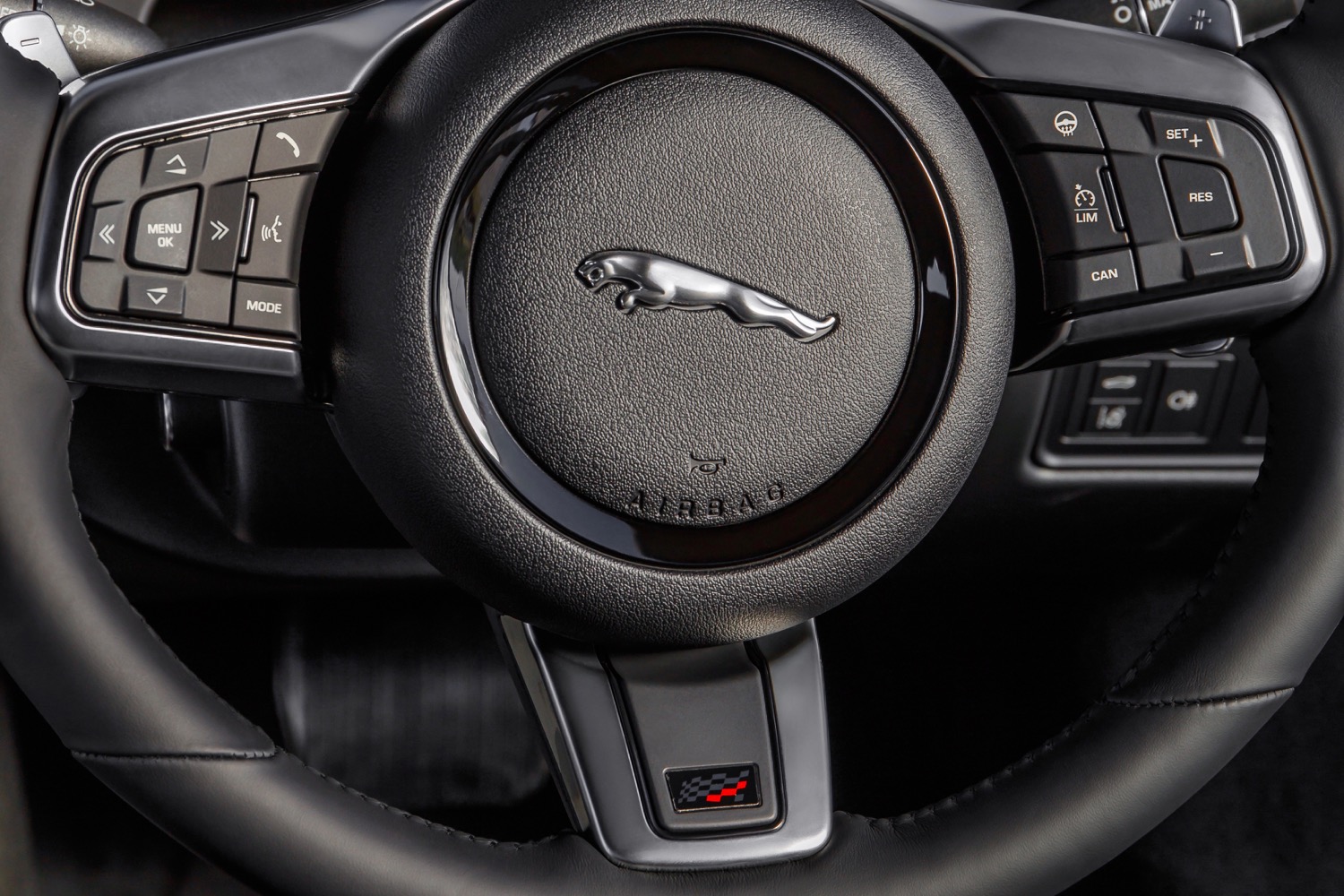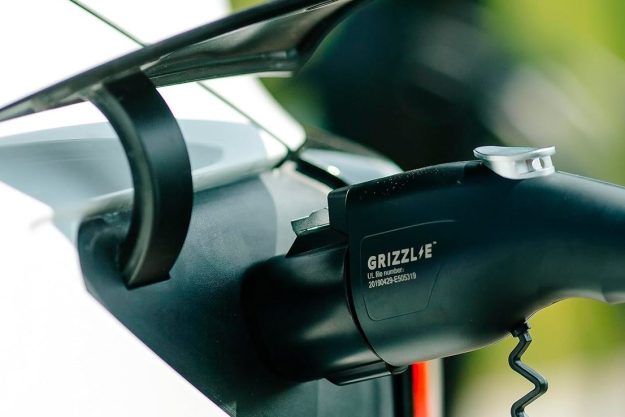Launched in 2012, the Jaguar F-Type is fairly old by industry standards. Jaguar is trying to keep its sports car fresh by looking even further into the past. The 2020 Jaguar F-Type gets a new Checkered Flag Limited Edition model meant to reference Jag’s past sports-car glory.
Jaguar has a deep well of history to draw from, going back to the 1948 XK 120. But, aside from the F-Type itself already looking like a reincarnation of the classic E-Type, it’s hard to see how the Checkered Flag Limited Edition references any of that. The new model is essentially a dress-up package with special exterior and interior styling elements to distinguish it from other F-Type models.
Based on the R-Dynamic model, the Checkered Flag Limited Edition is available in three colors: Caldera Red, Fuji White, and Carpathian Gray. The limited edition is available as a coupe or convertible, and both body styles get an Exterior Black Design Pack with trim pieces in, you guessed it, black. Coupes also get a contrasting roof. Model-specific 20-inch wheels, red brakes calipers, and special badging round out the exterior.
The interior has standard “performance” seats with checkered flags embossed on their headrests, and a checkered-flag logo on the steering wheel. The center console is trimmed in dark brushed aluminum, and a 10.0-inch infotainment touchscreen, and a Meridian audio system are standard equipment. Apple CarPlay and Android Auto are standard on all F-Type models for 2020.
The Checkered Flag Limited Edition is available with a 296-horsepower 2.0-liter turbocharged four-cylinder engine or a 3.0-liter supercharged V6 producing 380 hp. An eight-speed automatic is the only transmission available. Jaguar offers a 340-hp version of the V6 and a 5.0-liter supercharged V8 in 550 hp and 575 hp strengths on other versions of the F-Type. Both rear-wheel drive and all-wheel drive are available, depending on the engine. We’re still waiting for Jaguar to put its awesome F-Type rally car into production.
While the engine lineup remains intact, Jaguar is discontinuing the F-Type’s six-speed manual transmission in the United States. That’s likely due to poor sales: Car and Driver estimates that just four percent of F-Types sold in the U.S. since the manual’s introduction for the 2016 model year had three pedals.
The 2020 Jaguar F-Type starts at $62,625 for a base four-cylinder coupe, while the Checkered Flag Limited Edition starts at $72,925. Both prices include a mandatory $1,025 destination charge. Meanwhile, Audi is launching its own special edition TT to celebrate that sports car’s 20th anniversary.

